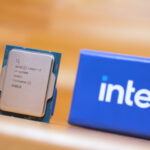Meta has unveiled its plan to collaborate with external hardware companies like Lenovo, Microsoft, and Asus to develop virtual reality headsets using the Meta Horizon operating system, as revealed by the company on Monday. This move is aimed at creating new hardware devices that will operate on the same software platform as Meta’s existing first-party VR devices such as the Quest 3 and Quest Pro.
The strategic move made by Meta underscores the evolving landscape of the VR hardware market, particularly in light of Apple’s recent entry with the Vision Pro VR headset priced at $3,500 in January. Meta’s CEO, Mark Zuckerberg, likened this development to the Android versus iOS competition in the smartphone industry, highlighting the diversification in hardware offerings running on Meta’s operating system.
Mark Zuckerberg emphasized the company’s decision to allow hardware partners access to its operating system as part of its broader strategy in advancing virtual reality technology. Meta’s Reality Labs division has been a significant investment area for the company, despite reporting an operating loss of $4.65 billion on $1 billion in sales in the fourth quarter of 2023.
For years, Meta has been pushing against Apple’s stringent App Store policies, aiming to establish its own app ecosystem within the virtual and augmented reality space. The move to offer its operating system to hardware partners represents the culmination of Meta’s efforts to challenge the closed model approach adopted by Apple in favor of a more open computing environment.
Meta’s CEO also extended an invitation to Google to bring its Google Play app store to Meta’s Horizon-based headsets, demonstrating a commitment to fostering collaboration within the industry. Additionally, Meta intends to support platforms like Steam and Microsoft’s Xbox Cloud Gaming on its operating system, leveraging its Android-based platform for easier app integration.
Although specific details on the business arrangements with hardware partners and the software monetization strategy were not disclosed, Meta envisions a future where tailored hardware offerings cater to diverse market segments based on different usage scenarios like gaming or productivity. Zuckerberg hinted at the possibility of a device bundled with Xbox controllers, suggesting a strong gaming focus in the company’s hardware roadmap.
While the timeline for these new devices hitting the market remains uncertain, Zuckerberg projected a potential launch within a few years. The move to open up Meta’s operating system marks a significant shift in the VR industry dynamics, paving the way for increased innovation and collaboration among hardware manufacturers sailing towards a common virtual reality future.











